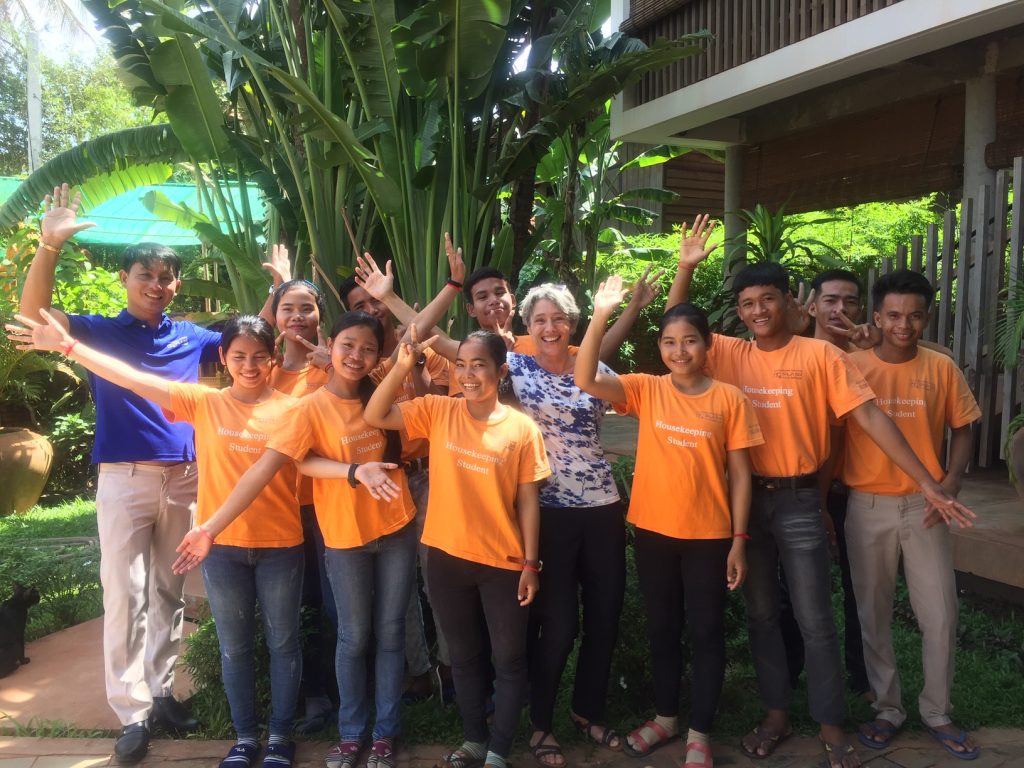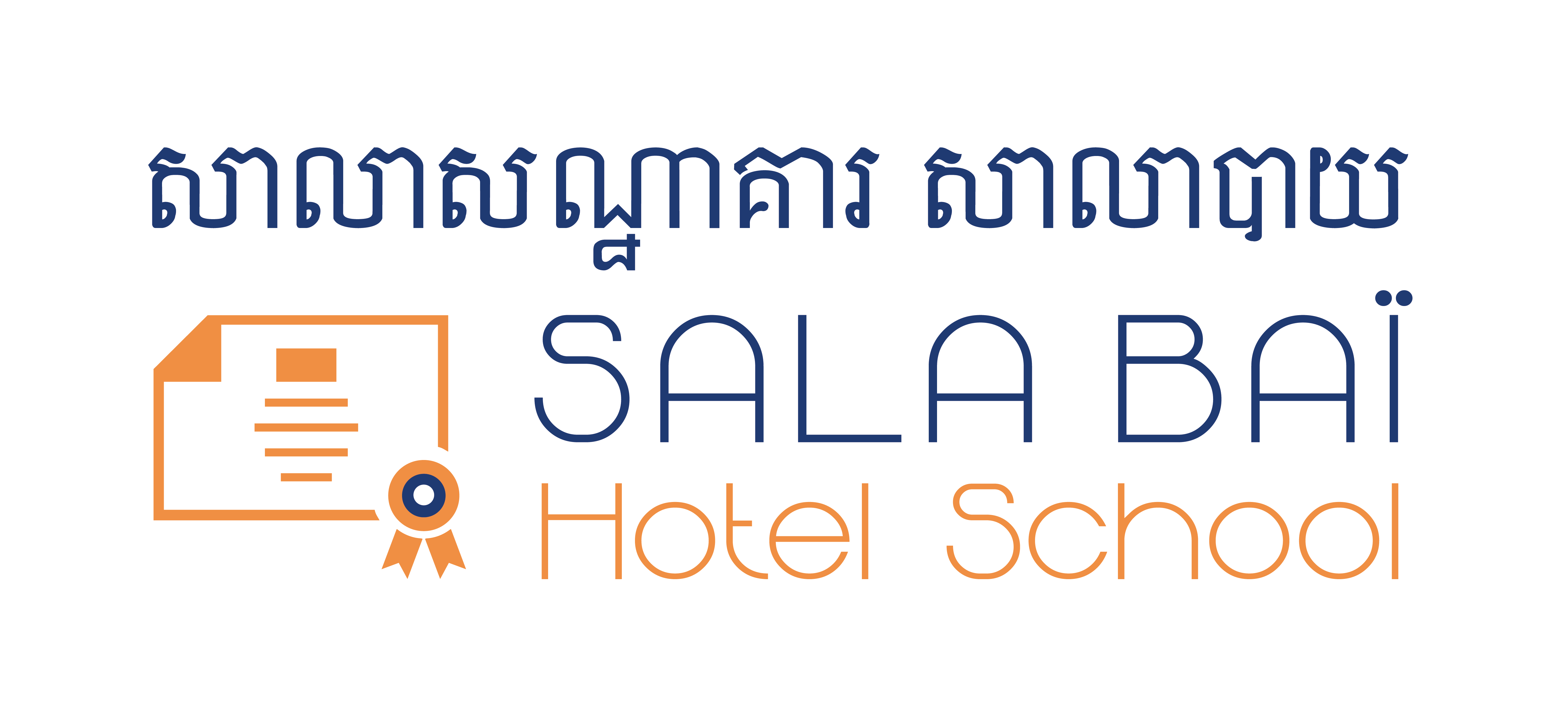Upgrading English language teaching at Sala Baï is one of the school’s focus areas. In August 2019, the position of English-speaking coordinator was created. Sabine Tourtellier has joined the teaching team to support the three teachers and set up more interactive methods. She explains:
Why did Agir pour le Cambodge decide to create the position of English Coordinator?
Feedback from the annual reviews with our partner hotel s showed that Sala Baï students’ level of English needed to be improved to better meet the demands of the tourism industry, especially in the face of competition. It is a real challenge for them to be able to express themselves in English because many had very little knowledge before studying at Sala Baï, a consequence of their dropping out of school at a young age. So they need more support, especially since the Sala Baï training is recognised by the ASEAN countries.
In concrete terms, what’s involved?
I arrived at Sala Baï in August, when Sala Baï runs an introductory course for young people who have never studied English. While observing this course, I was able to suggest improvements to the teachers and methods that focus on oral participation by students, encouraging them to dare to speak English and get rid of their inhibitions.

What methods are you using to improve the English programmes?
My priority is to steer the method towards a direct and active method. I emphasise the role of oral participation in learning: immersion, repetition, intuition.
The pillars of my method:
– think in a foreign language: I encourage direct confrontation with the target language There is no more systematic translation into mother tongue. For example, vocabulary is explained using images or objects.
– focus on oral: the passage through the written form is not systematic. Pronunciation and speaking take precedence and the written word is used as support for the spoken word only, in order to consolidate knowledge.
– privilege an inductive approach: it is through observation that the rules of a language are developed, in the same way as we learn our mother tongue.
This all takes concrete form in our daily work with the teachers of Sala Baï. Together, we’ve set up collaborative workshops. We define a programme and divide students up into groups according to their level. In addition to the written assessment, we’ve introduced an oral assessment of each student help them to meet the requirements for their future profession.
In the collaborative work with the teachers, I’ve suggested that they use media that are more fun: books, videos, films in English subtitled in English (our first film will be Ratatouille which is both funny and highly relevant!) We’re also setting up English conversation groups on artistic themes in order to develop students’ openness to art. We’ve already worked on Tribe Art Gallery for Khmer artists. We organise conversation sessions with native English speaking volunteers. Finally, every Friday from November, we will institute English Days: only English will be spoken at school.
Every effort is made to ensure that students acquire vocabulary and knowledge adapted to the hotel and restaurant industry. They are put in situation and use educational material. For the Cooking section, for example, signs with pictures of forks, glasses and plates are displayed in the kitchen. We also use a fun approach by organising games such as the beret game, focusing on different lexical fields: vocabulary relating to catering, figures, body parts, etc. Every week, I assess a group of students over a 2-hour period in order to assess their progress.
